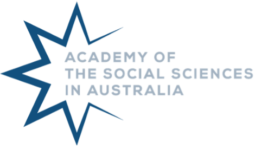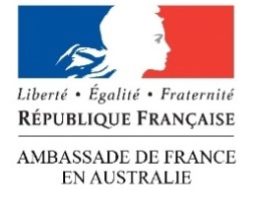2022 Australia-France Social Science Collaborative Research Program winners announced
Four teams of social scientists from Australia, France and the Pacific will receive a boost towards interdisciplinary research projects tackling major societal issues, thanks to $20,000 in funding from the Embassy of France and the Academy of the Social Sciences in Australia.
The Australia-France Social Science Collaborative Research Program, now in its third year, aims to foster and reinforce social science collaboration between Australia and France. Through the program, both organisations are particularly interested in supporting research activities in the Pacific Islands, including French overseas territories. This year’s award recipients will explore issues ranging from copyright to cultural appropriation, and all are excellent examples of the breadth and depth of social sciences links between a wide range of institutions in France and Australia.
The Academy and the Embassy congratulate the successful recipients of the program.
The four successful projects are:
Capacity Assessment of Self-Recovery in New Caledonia
Project Leader: Mr Thomas Johnson, University of Newcastle
New Caledonia is frequently affected by disasters including cyclones, floods, landslides, and storm surges. Following a disaster, recovery efforts are often led by Non-Governmental Organisations (NGOs), however, NGOs are increasingly following a self-recovery approach that supports the recovery initiatives of disaster-affected communities themselves. Benefits of self-recovery include a sense of autonomy, fostering self-reliance and enhancing community resilience to disasters.
Self-recovery projects have been successfully implemented in the Pacific islands, for example, after major cyclones in Vanuatu. But are these transferrable between regions?
This pilot study will assess the potential of self-recovery in New Caledonia and build long-term working partnerships with key stakeholders in the region. It will aim to investigate the opportunities and challenges about self-recovery in New Caledonia, provide guidelines for humanitarian agencies operating in the region and support a new research team capable of sharing knowledge between French Pacific islands and other countries in the Pacific region.
Tracing the La Pérouse expedition survivor voyage to Torres Strait
Project Leader: Associate Professor Wendy van Duivenvoorde, Flinders University
Over 230 years ago, when two ships of a French exploratory expedition were wrecked in the Solomon Islands in 1788/1789, the survivors assembled another vessel and attempted to sail back to France. They never made it.
What’s more, the expedition was lost without a trace until the original two shipwrecks were discovered almost 40 years later. The fate of the survivors and their improvised craft has been theorised since, but no confirmed traces have ever been found.
Recently uncovered documentary evidence suggests that the survivor craft may have been wrecked on the Barrier Reef near Murray Island (Mer) in Torres Strait. If proven, this would represent the only extensive physical remains of French voyages of exploration in Australia, and the earliest known shipwreck on Australia’s east coast.
Music and Value: production, circulation, exchange, and adaptation.
Project Leader: Dr Denis Crowdy, Macquarie University
How do newly created intellectual property rights become understood and applied? What sort of reception do they receive? Does this change according to the local landscape? This project, which will include a workshop at Macquarie University and the development of an app to be used in Melanesia, explores the nature and challenges of implementing copyright in relation to existing practices.
This research will build on recent work by members of the project team on commerce and copyright in music sharing Melanesia.
This subject is particularly topical as Vanuatu has put in place legislation for the protection of intellectual property rights in 2012. Papua New Guinea has enacted copyright legislation however it has not been implemented due to local factors. Scholarly work emerging from the workshop will lay the ground for an open access scholarly monograph with a mix of chapters in English and French.
Globalized Cultural Industries: towards a joint research project
Project Leader: Associate Professor Aurélie Condevaux, University Paris 1 Panthéon-Sorbonne
Questions of global culture and cultural appropriation have never been simple. But in recent decades, the relationship between culture and economy has changed, creating increasing pressures.
On the one hand, mainly since the 1970s, there have been calls for the protection of cultural elements from forms of commercialisation deemed abusive. On the other hand, development actors and international organisations (UNESCO, WIPO, OECD, WTO) increasingly consider “traditional cultural expressions” as a development resource: a perspective that has raised particular concern for regions like the Pacific Islands, which are not well protected against cultural appropriation.
This project is a continuation of past meetings, informal workshops and public conferences that have been held since 2018 as researchers work to build an interdisciplinary research team with a shared interest in cultural industries and the commodification of cultures.

